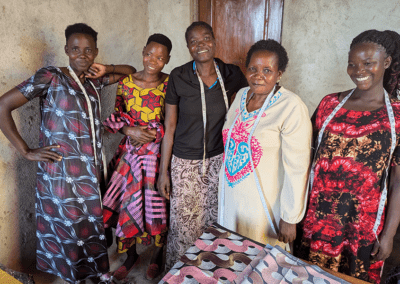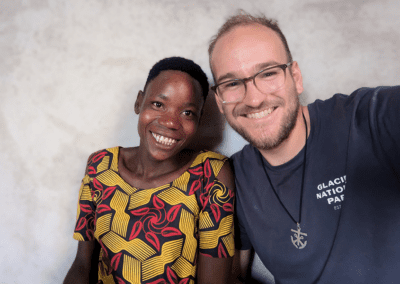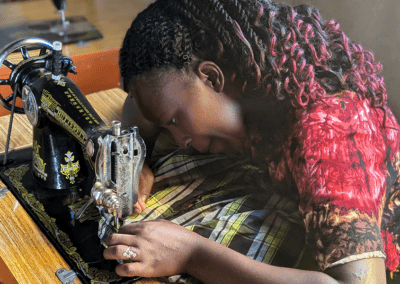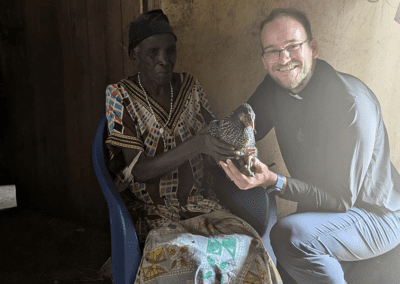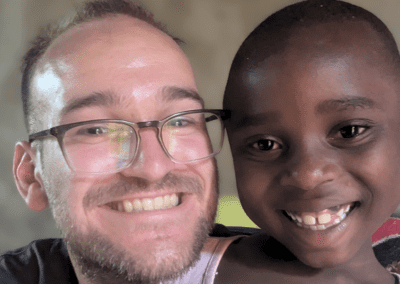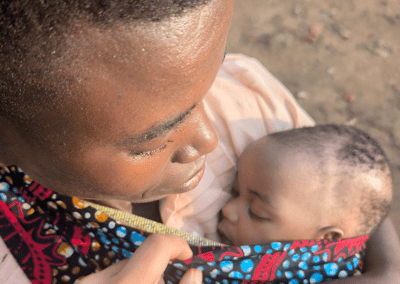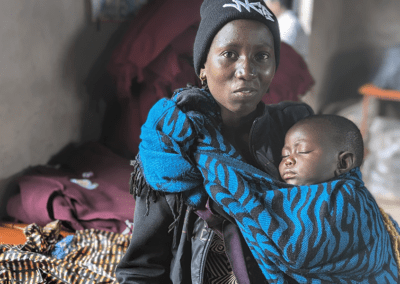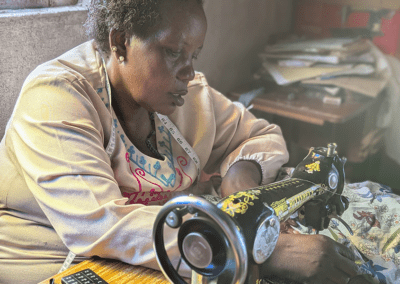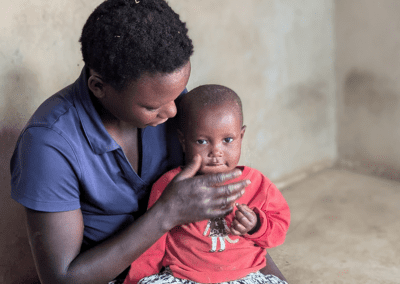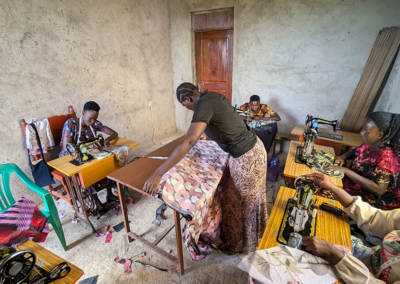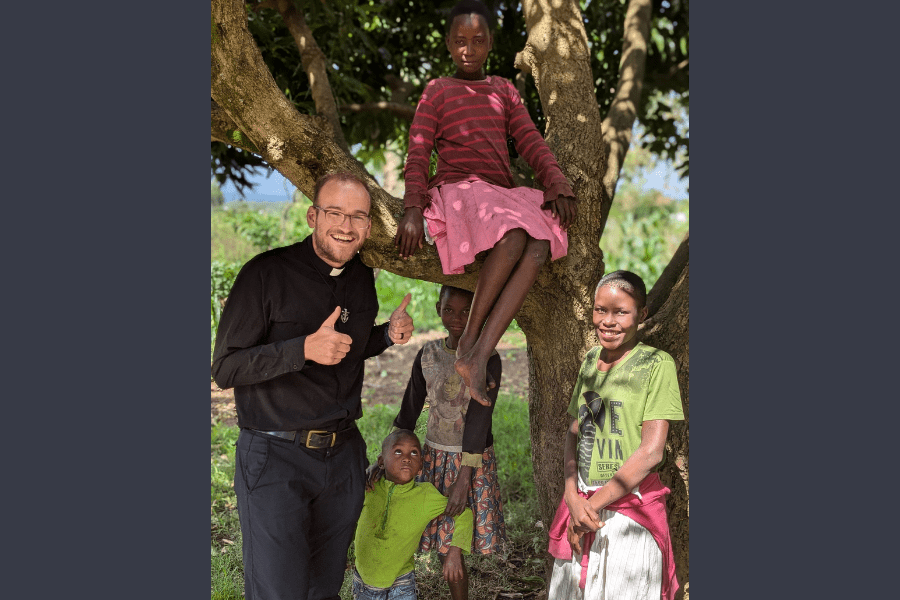
In the “Letters from Nyumbani” series of reflections, Moreau seminarian Keenan Bross, C.S.C., will share his experiences during his pastoral year at St. Felista Catholic Church, a Holy Cross parish in Utegi, Tanzania. The series title includes the Swahili word “Nyumbani,” meaning “home,” a reminder that for Holy Cross religious, “Often we must make ourselves at home among more than one people or culture” (Constitution 2 of the Congregation of Holy Cross).
———
The Village Parish: Refuge & Hope for our Women & Girls
Last week on a Tuesday morning, two unusual suspects walked in the back a few minutes late for 7:00 am morning Mass: 16- or 17-year-old girls, Furaha and Adia (their names have been changed to protect their privacy). I recognized Furaha from one of our church outstations on the edge of the parish boundary where she sings in the choir, so I greeted them right away after Mass. They told me that they began walking at 3:00 am to get to Mass and to meet with Father, which I knew couldn’t possibly be good news. I was as tender as I could be with them, and explained the situation to Fr. Innocent, and went inside to see if we could get them some tea or bread after the long journey — I had no idea, though, what was really going to unfold.
A little later that morning, Fr. Innocent informed me that the girls had run away from home that morning. Furaha, because she was scheduled to be married off that day. And Adia, because she was to be circumcised, which is a common ritual for adolescent girls and boys this time of year in the neighboring Kuria tribe. (For girls, this practice is often referred to as “female genital mutilation,” and Pope Francis has denounced it). Having received these runaways at the church, Fr. Innocent was tasked with comforting them, negotiating with the authorities (since their families were looking for them), and finding refuge for them in the coming days. By the end of the day, they were a few towns over in a girl’s refuge center, their parents notified that they were in the church’s custody for now. Furaha will begin training as a tailor in town, and Adia will continue her studies so that she can finish high school properly.
Fr. Innocent says that such dire cases come around maybe five times per year, but the challenges that our women face—especially young women—are ever-present. One of the first things you notice when moving around Utegi is that men tend to have more than one wife. For nearly all the tribes near our parish, polygamy is the norm, even among Catholic Christians—after marrying his first wife, a man might marry another one every five to fifteen years, depending on his family circumstances. Of course, all of these being marriages according to tribal tradition, not the Sacrament of Matrimony in the Church. It’s common enough to find a 25-year-old man with two wives, and a 40-year-old with three or four. Marriage, understood by the culture here, is less about romance or vocation, more about building up the family and the community.
This means that marriage is the absolute horizon for most girls as they grow up in the village—few dream about studying and taking on their own profession or running their own business. Instead, they imagine finishing primary or secondary school, being married to someone 30 or 40 or even 50 years old, moving to his village, taking care of his home, farming his fields, and raising his kids.
Life can be hard for these women, especially when their husband is unsupportive or abusive or an alcoholic. It’s also hard when a girl is married off before becoming her own person, or gets pregnant before finishing her studies or establishing herself. It’s surprising to me just how many teenage girls I find breastfeeding around the villages, often as a second or third wife. And although there’s genuine beauty and joy to their vocations as mothers – they all thank God for their children and families – it’s also not fair that their life trajectories have been limited so early, often without their consent.
But for all these challenges—for girls and women alike— there are also many joys. Life is good and beautiful —these big families are often sprawling beds of fun for the children, networks of deep care and concern, and places for collaboration in building up their homestead and village. Although those who have not been married in the Church or are in polygamous marriages cannot participate fully in the Sacraments, many still find deep consolation and community in St. Felista’s Church—especially as choir members or another prayer group, as well as their own neighborhood Jumuiyas, known in English as small Christian communities.
In the face of these joys as well as these challenges, I’ve really wondered: what is the role of St. Felista’s, of our humble parish, in all of this? Of course, Catholic matrimony is Catholic matrimony. We can allow the marriage of one man and one woman. We encourage couples strongly to be married in the Church if they aren’t yet (a step many husbands here take only years after bringing a wife into their home). And we’re clear that bringing in additional wives is equivalent to adultery, whether or not they have married the first one in the Church. But that said, there’s no way you’re going to undo the tradition of polygamy from the pulpit. We uphold Church teaching to the tee and preach the Gospel of Jesus, but we do not batter people over the heads who are already in irresolvable situations. In addition to being wrong, that would be ineffective — people don’t generally enjoy being told that their way of life is totally backward.
Rather than rebuke, I’ve noticed that our primary response as Catholic Christians is invitational. Instead of simply saying, “This is what the Church teaches,” we help people imagine a life where monogamy and women’s entrepreneurship are real possibilities. Where building up a family goes together with intimate, exclusive love for your spouse. Where it’s as important to educate a young woman as a young man, and to count their adolescence as a precious time for discovery of their vocation. All of this I have heard, time and again, through the preaching of our Holy Cross priests and my own conversations. Bit by bit, the Spirit will guide our people to dream of a life that is fully rooted in their culture but also fully Catholic, integrating their commitment to the growth of their family with our commitment to the growth of the couple in love and support for each other.
In the meantime, we also work to change the landscape in little ways. It’s amazing to hear over time just how many young girls and women our priests support in different ways. Fr. Andrew just finished providing food and supplies for 10 girls to finish at our local high school. Fr. Innocent helps families with seeds or maize who we know are strapped because of school fees. And our parish has developed a tailoring program in four of our churches, using the sacristy during the week as a workplace for them. For the young women who are not married, learning to tailor provides them with an opportunity to make a life of their own rather than just being picked up by a husband before they are twenty. And for those who are already married, it’s a way to support their family and not be completely dependent on their husbands. Truly, there’s nothing more joyful than visiting these women as they work together on all kinds of clothing: in their laughter and smiles, hard work and sharing, the Kingdom of God really unfolds before your eyes.
Then there are those, like Furaha and Adia, who come to us in moments of crisis. Fr. Innocent and Mulema have recounted countless episodes of providing refuge for women fleeing abuse, of counseling couples who are falling apart—ultimately, becoming a home for the homeless and offering hope for the hopeless. Even I, these months, have been walking alongside a young woman who had to flee from her husband and is trying to establish herself anew. As Fr. Innocent often jokes about ministry, “it’s not easy.” You never know who, or what, you are going to encounter on a given day. But you begin each day with an open heart, ready to serve and do everything you can for each soul you encounter.
At our humble parish village, we can’t turn the great tides of culture in one way or another. We can’t wave a wand and reconfigure family life or the education system or the like. But here in our little garden, our little farm, we can sow the seeds of the Kingdom of God. As we preach, we water and fertilize as we imagine together a new way of being. As we walk with people, we pull up some weeds and try to make room for the wonderful women of our village to grow. And in the end, we hope to harvest some beautiful fruit. A community where girls, women, and wives are cherished and empowered to bring the Kingdom of Heaven down here to earth.
Support Holy Cross in East Africa: Give Today!
Published: December 6, 2024
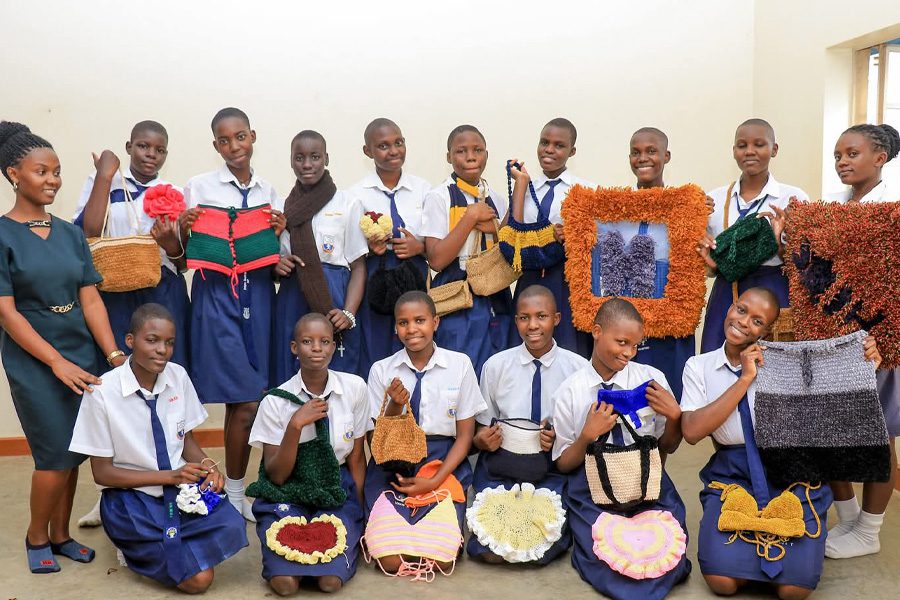
Mary Jane DeLaney Endowment Fund 2025-26 Projects Preview
Every year, the Holy Cross Mission Center (HCMC) facilitates the Mary Jane DeLaney Endowment Fund grant cycle, which supports vulnerable women and...
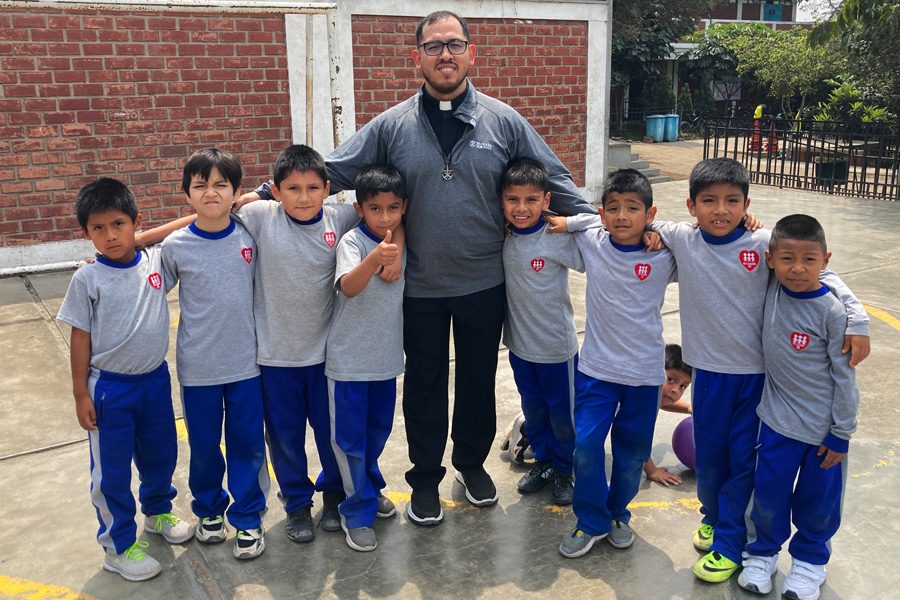
International Apostolic, Justice & Peace 2025-26 Project Preview
The Holy Cross Mission Center (HCMC) recently invited Holy Cross religious from six different countries to apply for the annual International...
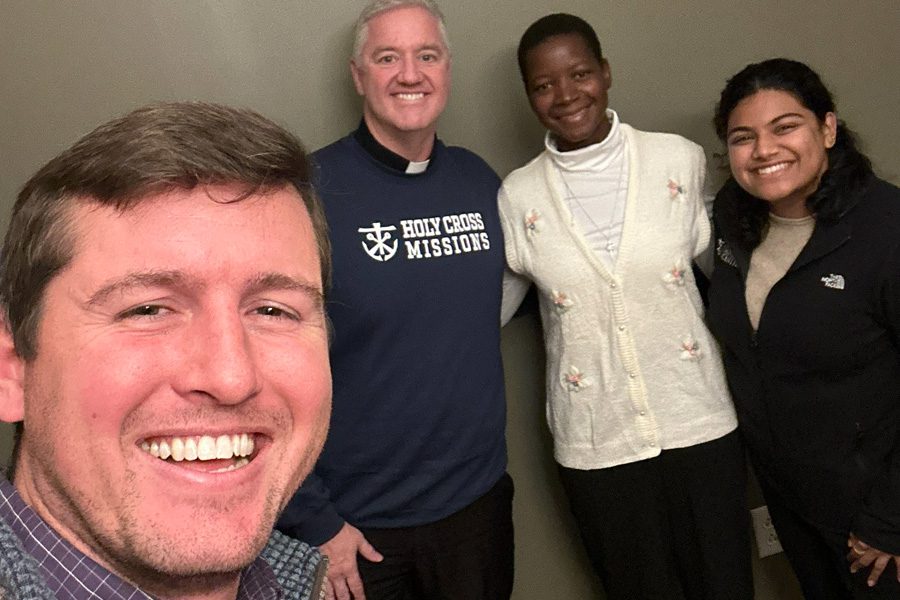
Community Outreach Updates: November 2025
The Holy Cross Mission Center (HCMC) is grateful to take this opportunity to share how we have engaged with the community in the past month. Baraka...

